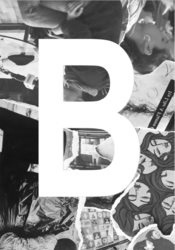(work in progress - translation will follow)
B Biografie
Einzelne Biografien oder Auszüge aus Lebensentwürfen in die schau.Räume Projekte mit einzubeziehen will unsichtbare, ungehörte, verdeckte, unent[1]deckte Geschichten sichtbar machen. Dies eröffnet einen gemeinsamen Raum von Lebensgeschichten, auch für solche, die im Alltags-Diskurs keinen Platz finden. In den letzten Jahrzehnten gab es eine „Hinwendung zu biografischen Metho[1]den“, insbesondere in den Sozialwissenschaften (Chamberlayne/Bornat/Wengraf 2000). Die Geburtsstunde der biografischen Arbeit wie auch Forschung in den Sozialwissenschaften ist jedoch bereits ein alter Ansatz, der vor einem Jahrhundert in Chicago mit der Arbeit von Thomas und Znaniecki (1920) begann und Marginalisierung, Ausgrenzung, Übergänge in Frage stellte und sich bis heute als fruchtbringend und wichtig erweist, wie die Soziologin und Politikwissenschaftlerin Ursula Apitzsch in einem Artikel mit Lena Inowlocki aufzeigt:
„[…] Viel qualitative interpretative Forschung und insbesondere biografische Analyse setzen keine soziale Normalität voraus, sondern fragen nach Erfahrungen in Zeiten des sozialen Wandels und in Momenten und Zeiten der Krise sowie nach der Notwendigkeit neuer sozialer Praktiken, um weitere Ausgrenzung zu verhindern oder den vollständigen Zusammenbruch des individuellen oder sozialen Lebens zu vermeiden“ (Apitzsch/Inowlocki 2000: 55).
Die bei schau.Räume angewendete Biografiearbeit will die abstrakte Ebene verlassen und sich mit den Erfahrungen von Menschen befassen. Dies impliziert eine Diskussion von Erinnerungen, die persönliche Erfahrungen und Einstellungen offenbaren und so den Zugang zu sozialen Realitäten auf subjektiver und sozio-historischer Ebene ermöglichen. Diese Verknüpfung von sozialem Kontext und der Perspektive auf nicht-hegemoniale Lebens- und Liebesweisen ist von immenser Bedeutung (Gregor/Ruby 2018, Stauber 2018). Es wird nach authentischen Erzählungen/Geschichten gesucht und „eigene Erfahrungen“ werden mit anderen geteilt, wieder neu konstruiert (Reich 2008). Grundlegend stützt sich dieser eher politische Ansatz, auf Frigga Haugs Modell subjektorientierter Forschung (2001).
Die Art und Weise, wie Biografiearbeit hier angewendet wird, eröffnet auch den Zugang zu intuitiver Erinnerung, wie sie in einer Gruppenumgebung auftauchen kann und gibt Chancen für Assoziationen und wirkt dem Vergessen entgegen. Um es mit der Schriftstellerin und Nobelpreisträgerin Toni Morrison zu sagen: “Die Erinnerung (der bewusste Akt des Sich-Erinnerns) ist eine Form von gewolltem Schaffensvorgang. Es geht nicht um das Bemühen herauszufinden, wie es wirklich war – das ist Recherche. Es kommt darauf an, sich damit zu befassen, wie es einem erschien und warum es einem auf diese spezielle Weise erschien“ (2020: 505).
Verwendete Literatur:
Apitzsch, U. /Inowlocki, L. (2000). Biographical analysis A ‘German’ school? In Chamberlayne, P. / Bornat, J./Wengraf, T. (Hg.). The Turn to Biographical Methods in Social Science Comparative issues and examples. London: Routledge.
Chamberlayne, P./Bornat, J./Wengraf, T. (2000). The Turn to Biographical Methods in Social Science Comparative issues and examples. London: Routledge.
Gregor, J. /Ruby, S. (2018). Biografie und Geschlecht. In: Lutz H., Schiebel M., Tuider E. (Hg.) Handbuch Biographieforschung. Wiesbaden: Springer VS.
Haug, F. (2001). Erinnerungsarbeit. (3. Auflage). Hamburg: Argument Verlag.
Morrison, T. (2020). Selbstachtung. Ausgewählte Essays. Hamburg: Rowohlt. Reich, K. (2008). Biografiearbeit, Universität Köln. Abgerufen am 02.01.2021 pdf from http:// methodenpool.uni-koeln.de/download/biografiearbeit
Stauber, B. (2018). Taking the Biographical approach seriously – what does it mean for the concept of biographicity in Revista de Sociología de la Educación-RASE, ISSN[1]e 2605-1923, Vol. 11, Nº. 2, 2018 (Ejemplar dedicado a: BIOGRAFICIDAD Y EDUCA[1]CIÓN), págs. 216-227.
Rosalia Kopeinig, (2022) Biografie-Workshops schau.Räume. In 10 Jahre schau.Räume Wirkstätte und Werkstädte (2022). Herausgeberin schau.Räume. Klagenfurt/Celovec-Ljubljana/Laibach-Wien/Dunaj: Hermagoras Verlag/Mohorjeva založba.
